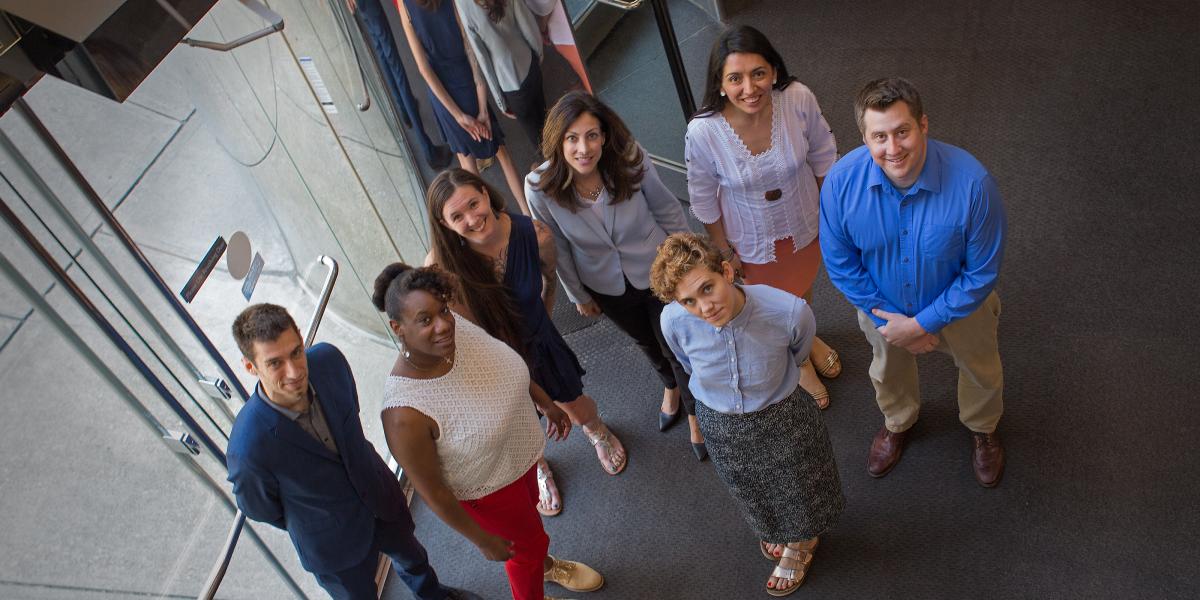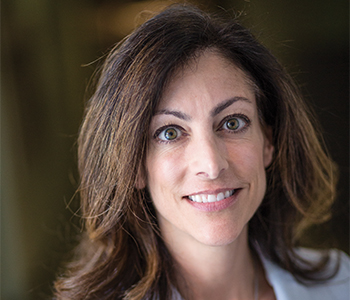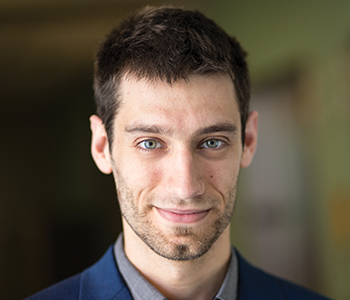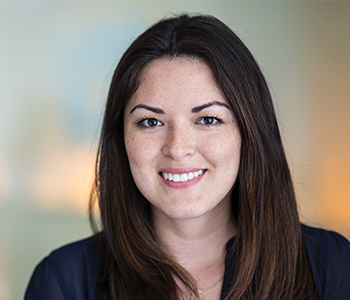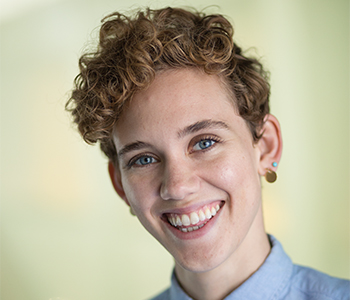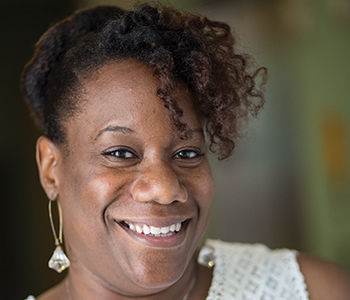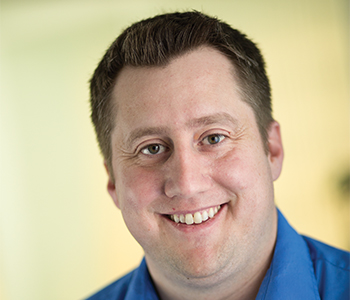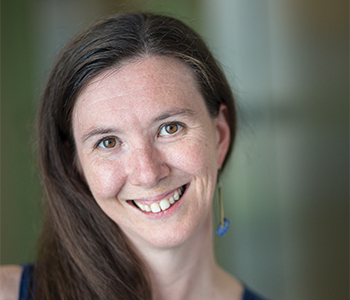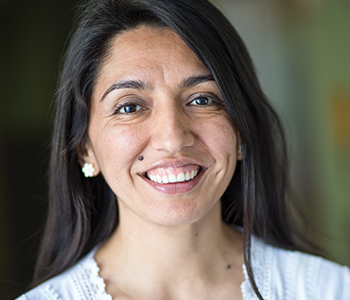Meet the First Bloomberg American Health Initiative Fellows
The first Bloomberg Fellows are gaining public health skills to take back to their communities across the country.
They are already doing impressive work on the front lines of public health. Now, as students in the School’s MPH program, the eight inaugural Bloomberg Fellows are augmenting their diverse professional experiences with formal public health training that they will take back to their community organizations after earning their degrees.
The Fellows scholarship program is a centerpiece of the Bloomberg American Health Initiative, launched in 2016 with a $300 million gift to the School from Bloomberg Philanthropies to accelerate progress on critical health challenges in the U.S. Each fellow’s work aligns with one of the Initiative’s five focus areas: addiction and overdose, environmental challenges, obesity and the food system, risks to adolescent health, and violence.
ANDREA WALKER
Director of Behavioral Health Services
Frederick County Health Department, Frederick, Maryland
Several years ago, one of my staff died by suicide using a lethal combination of opioids and alcohol. At the time, we were working together on a suicide prevention toolkit for primary care physicians. No one is immune to suicide or addiction. Stigma can prevent clinical and medical staff from seeking the same treatment they recommend or provide to their patients.
Addiction changes the brain and is a chronic disease. Treatment should be customized to meet the needs of each client. However, in many jurisdictions, access to the full continuum of care does not exist.
JULIAN DRIX
Asthma Program Manager
Rhode Island Department of Health
Asthma dispropotionately impacts children of color living in poverty and substandard housing in the urban core cities. This is why I’m working with Medicaid and health systems to expand availability and coverage for home-based asthma interventions.
Climate change is not a separate “environmental” issue; it is fundamentally intertwined with societal equity issues. We face interlocking crises requiring systemic changes and intersectional solutions.
MILAGROS “MILA” NEYRA
Diabetes Program Coordinator
The Institute for Family Health, New York City
It takes an entire team to help patients manage a disease and navigate the health care system: primary care and behavioral health providers, diabetes educators, health coaches and care navigators. Once people are connected with resources, they feel empowered to make changes for their own health and well-being.
The hardest part of my work is seeing the effects of uncontrolled diabetes in underserved populations. Our patients face many barriers, not just one chronic condition or social struggle.
KATE VANDER TUIG
Senior Program Specialist
Futures Without Violence, San Francisco, California
VIiolence and trauma that are not addressed can strongly impact the health of individuals and communities in the long run, but we have the tools to heal, empower and connect to prevent negative impacts and prevent violence from happening in the first place
The myth that violence is inevitable is being disproven, but the new stories to replace it need to be written and played out for our communities. I want to move the field of public health forward by advancing strategies that address gender-based violence as a social determinant of health—in practical, scalable and culturally adaptable ways.
KELLI MCINTYRE
Physical Activity Coordinator
Get Healthy Philly, Philadelphia Department of Public Health
Our work centers around the belief that ALL Philadelphians have the right to full, long, and healthy lives. [There is a] look of pure joy on people’s faces when they try and conquer a new physical activity, like walking in the park, visiting the neighborhood pool or participating in an unexpected “movement break” at a meeting.
WE are committed to reducing the structures in our city and society that result in health disparities and differences in life expectancy between the rich and the poor, as well as in communities of color in our city.
BRADY GARRETT
Psychologist
Cherokee Nation Behavioral Health, Tahlequah, Oklahoma
My doctoral training emphasized multiculturalism, social justice and evidence-based practice and solidified my commitment to underserved populations, particularly as related to my tribal group in northeastern Oklahoma.
Working across disciplines and with community members is critical to tackling large public health concerns such as addiction and overdose. It’s difficult not having the resources to initiate more [culturally sensitive] prevention and intervention research. This is why partnering with outside organizations that are sensitive to working with Native populations is important.
HAVEN WHEELOCK
Coordinator, Syringe Exchange Program
Outside In, Portland, Oregon
I lost five clients in three weeks this summer, and my heart hurts. That is followed by having people sitting in my office so motivated to stop using drugs but not having access to the kinds of help that they want and need.
When I started doing this work, the focus was HIV and hepatitis C. Now it is overdose. Back then it was shocking to hear people use the words “harm reduction” outside of those doing the work. Now it is recognized as what needs to happen if we hope to stop the deaths.
MÓNICA GUERRERO VÁZQUEZ
Program Coordinator
Centro SOL (Center for Health & Opportunity for Latinos), Baltimore, Maryland
Ultimately, my goal is that being a Latina, immigrant or person of color is no longer equated with poor access to health care or education. As an immigrant, I want to expand the work that I do for my community. My approach is to engage and empower.
I want to scale up our programs so that promising Latino youth can be the new leaders. [I have worked with] youth born here whose health and well-being are affected by policies that don’t take into account the complexities of diverse and immigrant communities. Child and adolescent health requires a comprehensive approach that involves the family and community. It is not only about kids; it is about a whole system.
